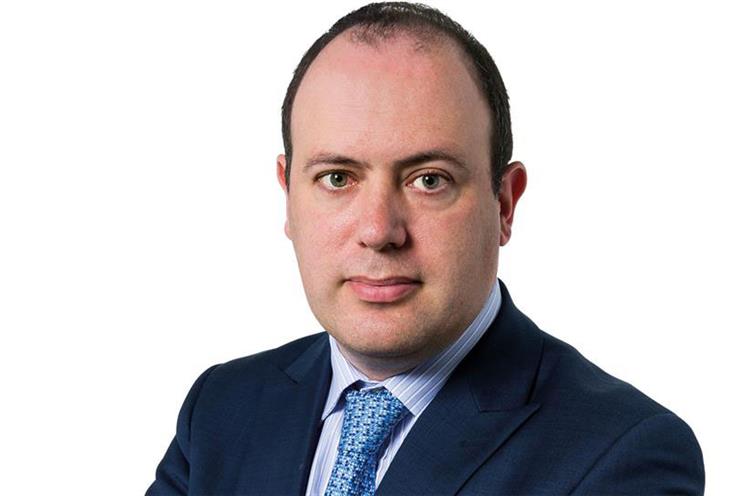Procter & Gamble and Unilever, the world’s two biggest advertisers, set alarm bells ringing earlier this year.
P&G, which spends $7.1bn (£5.5bn) a year on advertising, reduced agency and production fees and warned of transparency problems with the "murky" digital media supply chain.
Unilever, which has a €7.5bn (£6.82bn) overall marketing budget, said it would halve the number of agencies it uses globally and cut the number of ads it produces by 30% to simplify its marketing and become more efficient.
Now we have the first proof that the cost-cutting is having a financial impact on the big ad agency groups, which rely on FMCGs for upwards of 10% of their revenue.
The cutbacks dominated discussion during the agencies’ recent half-year results and earnings calls.
Dentsu Aegis Network issued a profit warning and Interpublic missed analysts’ expectations for its earnings, with both companies blaming FMCGs for reducing spend.
"All of us in this industry are contending with significant pressure from our consumer goods clients," Michael Roth, the chief executive of Interpublic, said.
John Wren, the chief executive of Omnicom, conceded his group is also feeling the effect. "When your client suffers, you suffer along with them a bit," Wren told Wall Street analysts.
There has been a knock-on effect on media owners such as ITV and Channel 4, which say they are suffering because of FMCGs too.
ITV said ad spend in food was down 26% and cosmetics and toiletries 17% in the first half of the year.
There is a multitude of reasons why the consumer goods giants have been cutting their marketing budgets but the need to boost profits has been the biggest factor.
FMCGs have come under pressure from investors because sales growth has been relatively lacklustre.
Zero-based budgeting – setting the budget at zero at the start of the year, rather than starting with last year’s budget – is all the rage as they try to cut costs.
In the UK, Brexit has added a further complication. Sterling’s plunge has pushed up the cost of importing raw materials and reduced the value of profits that are repatriated abroad – another reason for FMCGs to reduce spending.
However, the problems in the consumer packaged goods industry are structural and global as well as cyclical and local.
Nelson Peltz, an activist investor who wants a seat on the board of P&G, talks about FMCGs facing a series of "existential threats" from changing technology and consumer behaviour.
Digital disruption, chiefly from ecommerce, is undermining traditional retailing.
The fact that FMCGs don’t have a direct relationship with the consumer and rely on third-party retailers looks increasingly problematic in an age of data-driven marketing.
As Jerry Buhlmann, the global chief executive of Dentsu Aegis Network, told 北京赛车pk10 in June, FMCGs lack "an element of addressability" to communicate and transact directly with consumers.
These are fundamental problems that challenge the way that FMCGs have built their brands and developed their premium pricing over decades.
Peltz believes P&G – and, by implication, other traditional FMCGs – are lumbering and bureaucractic and need a radical shake-up, although he is not advocating that marketing spend should be cut because it can drive growth.
Unilever would appear to share at least some of Peltz’s analysis of the sector given that it has slashed the number of agencies it is using from about 3,000 to 1,500 on the grounds of inefficiency.
The owner of Dove, Marmite and Persil boasted it made €300m in "overhead savings" in marketing and spent 17% less with agencies globally in the first half of the year.
The company says it still believes in advertising to support its brands and maintains it won’t cut its media spend. However, it has reduced ad spend in Asia, which it said was over-saturated.
Only time will tell whether slashing agency fees has a negative effect on the quality of Unilever's creative output.
P&G cut its media spend in the April-to-June quarter, after reducing its digital advertising by $140m over fears about brand safety and viewability, and the owner of Always and Pampers didn’t see a drop in sales.
That was proof that the advertising was not working, according to P&G, which insisted it wasn’t motivated by cost-cutting.
None of this is good news for agencies or media owners. Roth told investors at his second-quarter results: "We don’t see a big recovery in consumer goods."
There is an interesting parallel between the fortunes of the consumer goods giants and the ad agency groups.
Both operate multi-national, legacy holding companies with a house of brands strategy.
In a more complex, fast-changing, digital world, both need to simplify how they operate to cope with digital disruption and to survive.
It is no coincidence that just as FMCGs are struggling, agencies find themselves suffering too.



